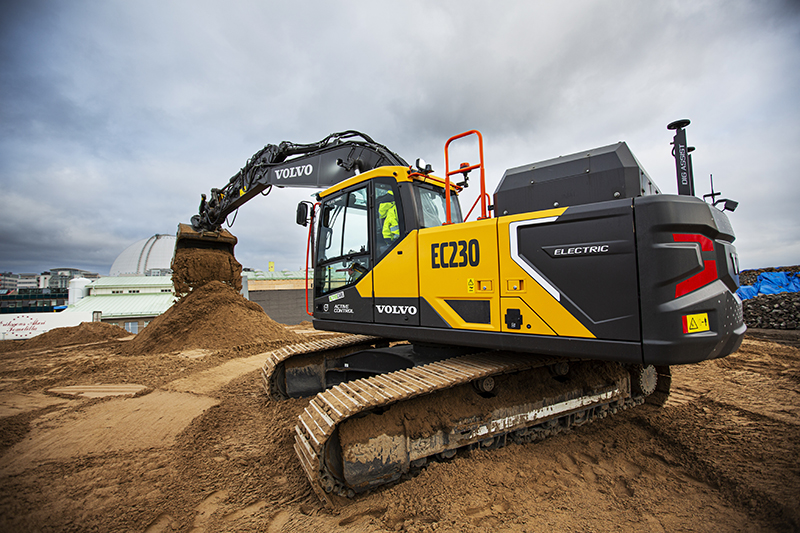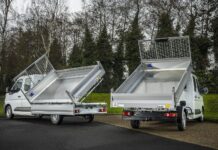PILOT projects and in-house tests by Volvo Construction Equipment have reportedly confirmed the comparable digging power of electric excavators to their diesel counterparts.
The ability of electric machines to work quietly and without emissions is well known. For some construction professionals contemplating the shift from diesel to electric, however, a concern remains around whether the diggers possess the necessary power to effectively tackle the tasks at hand.
Through refined electric drive systems engineered to deliver heightened torque and power, Volvo has designed electric excavators said to be capable of matching the digging performance of diesel models. Strides in battery technology have also led to improved energy densities and enhanced charge and discharge rates, empowering electric excavators to sustain heavy workloads for prolonged periods.
Volvo CE’s emobility segment leader, Gustav Boberg, along with operator Benthe Combee, recently undertook a trench-digging test with the Volvo EC18 Electric compact excavator. They put this 1.8t machine through its paces on rocky ground at the company’s HQ in Eskilstuna, Sweden.
Benthe embarked on digging a 20m-long, 600mm-wide and 750mm-deep trench in hard, compact clay with about a quarter stone content. For the first 10m, she operated the machine in ECO mode at 1,100 rpm, and for the subsequent 10m, she ran it in ECO mode at 1,600 rpm.
The model was described as performing ‘admirably’. After an hour and 40 minutes of continuous operation, the machine has consumed just 5.6kWh of energy — equivalent to 30% of the battery’s capacity — despite the challenging application. The state of charge decreased from 77% to 46% during this task.
At the larger end of the scale, the EC230 Electric, Volvo’s first mid-sized electric excavator demonstrated its power and endurance during a customer pilot with Skanska on the Slakthusområdet urban development in Sweden. The machine was tasked with excavating 75,000t of rock and 96,000t of soil in the initial stages, over approximately 2,700 working hours.
Powered by lithium-ion batteries, the 23t electric excavator has been designed to accomplish eight hours of work, supported by a high-power lunch-hour charge.
Richard Sjöblom, excavator operator for Skanska on the Slakthusområdet project, has been particularly positive about the ease of charging and the performance of the machine after testing it across different applications. He said, “If I had the choice of an electric or diesel machine in this size class, I would choose electric as there are so many advantages over a diesel machine. When the machine was delivered to site, there were many sceptics who thought the machine didn’t have the capacity to last the whole day, but they have all been proved wrong!”












